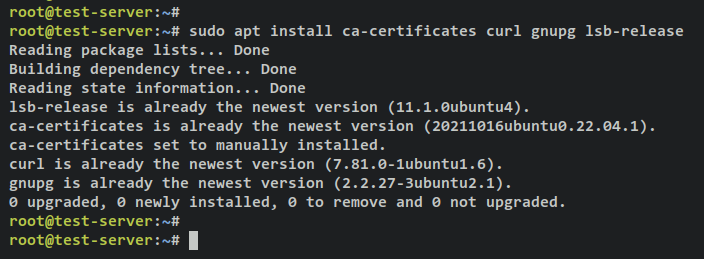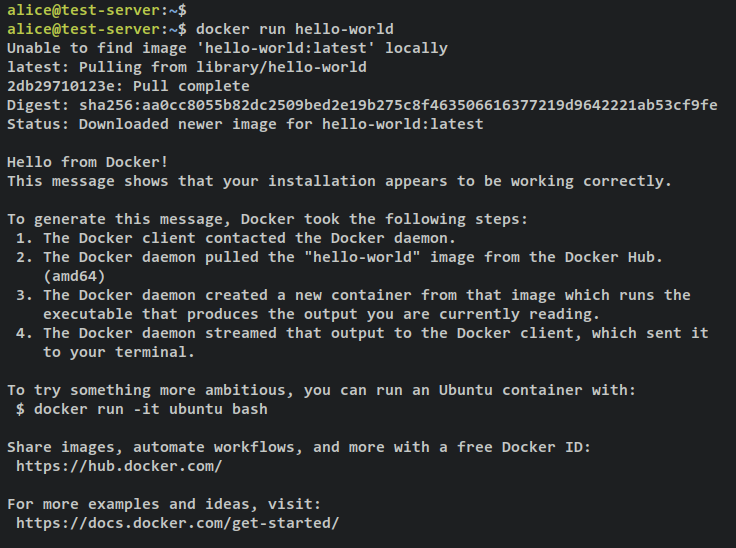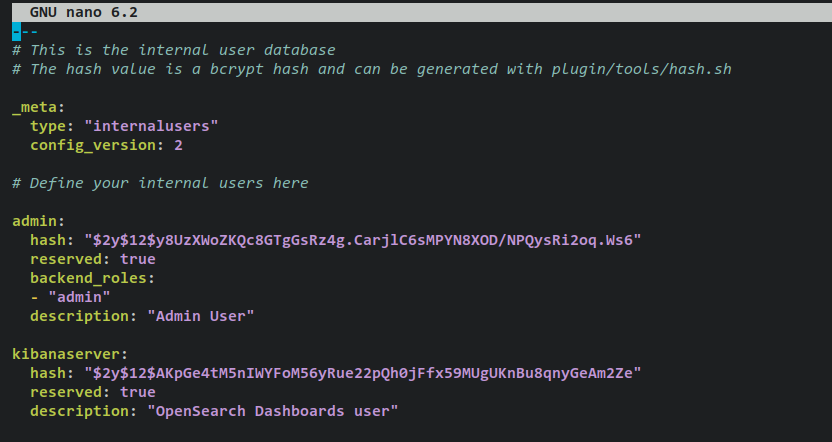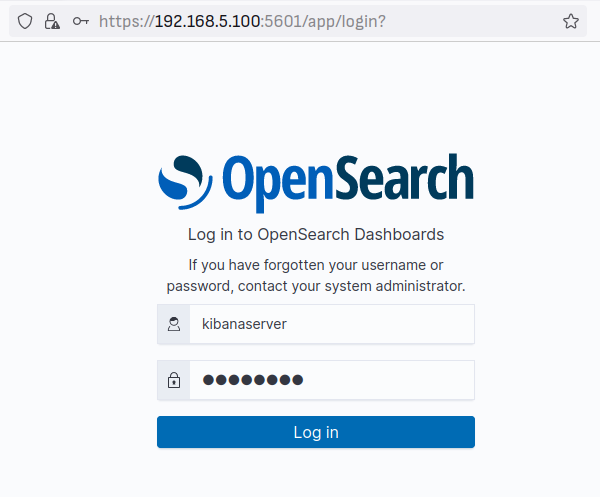OpenSearch is a community-driven project by Amazon that serves as a fork of Elasticsearch and Kibana. This open-source search engine and analytics suite are packed with features and innovative functionalities. OpenSearch consists of two primary components: OpenSearch, a fork of Elasticsearch, and OpenSearch Dashboards, a fork of Kibana. These components offer enterprise security, alerting, machine learning, SQL, index state management, and more.
Being 100% open-source and licensed under Apache 2.0, OpenSearch provides the capabilities to ingest, secure, search, aggregate, view, and analyze data for various use cases such as log analytics, application search, and enterprise search.
In this tutorial, you’ll learn how to install and configure OpenSearch and OpenSearch Dashboards using Docker on an Ubuntu 22.04 server. The guide will cover deploying an OpenSearch cluster with multiple containers and a single OpenSearch Dashboard using Docker Compose. Custom TLS certificates will be used to secure the deployment with authentication and authorization enabled.
A fresh Ubuntu server setup is necessary for this tutorial, so it includes steps to install Docker engine and Docker Compose on an Ubuntu 22.04 system.
Prerequisites
Ensure the following requirements are met before proceeding:
- An Ubuntu 22.04 server with at least 4-8GB of RAM. The example references a server with the hostname ” and IP address ”.
- A non-root user with sudo/root administrator privileges.
After fulfilling these requirements, you can start the OpenSearch installation.
Setting Up System
In this initial step, prepare your Ubuntu system for the OpenSearch deployment. You’ll disable SWAP and paging, then increase the max memory map through the ‘/etc/sysctl.conf’ file.
Execute the commands below to permanently disable swap and for the current session:
sudo sed -i '/ swap / s/^\(.*\)$/#\1/g' /etc/fstab sudo swapoff -a
Verify swap status by executing:
free -m
Expected Output:

Next, modify the ‘/etc/sysctl.conf’ file to increase max memory maps:
sudo echo "vm.max_map_count=262144" >> /etc/sysctl.conf sudo sysctl -p
Verify by running:
cat /proc/sys/vm/max_map_count
Expected Output:

Installing Docker CE and Docker Compose
You can deploy OpenSearch either by traditional installation or a containerized environment. This guide focuses on using Docker and Docker Compose for deployment. Begin by installing Docker engine and Docker Compose from the official Docker repository.
Install Basic Dependencies
Start by installing essential dependencies. Confirm the installation process when prompted:
sudo apt install ca-certificates curl gnupg lsb-release
Expected Output:

Add Docker Repository
Add the Docker GPG key and repository:
sudo mkdir -p /etc/apt/keyrings curl -fsSL https://download.docker.com/linux/ubuntu/gpg | sudo gpg --dearmor -o /etc/apt/keyrings/docker.gpg
echo \ "deb [arch=$(dpkg --print-architecture) signed-by=/etc/apt/keyrings/docker.gpg] https://download.docker.com/linux/ubuntu \ $(lsb_release -cs) stable" | sudo tee /etc/apt/sources.list.d/docker.list > /dev/null
Expected Output:

Install Docker and Docker Compose
Update your package index:
sudo apt update
Expected Output:

Install Docker and Docker Compose:
sudo apt install docker-ce docker-ce-cli containerd.io docker-compose-plugin
Expected Output:

The Docker service should start automatically. Verify using:
sudo systemctl is-enabled docker sudo systemctl status docker
Configure Docker User Permissions
Add your user to the ‘docker’ group to run Docker commands without sudo:
sudo usermod -aG docker alice
Log in as your user and verify Docker is functioning:
su - alice docker run hello-world
Expected Output:

Downloading OpenSearch Docker Images
Download the OpenSearch and OpenSearch Dashboards images from DockerHub:
docker pull opensearchproject/opensearch:latest docker pull opensearchproject/opensearch-dashboards:latest
Expected Output:


Setup Project Directory
Log in as the user ‘alice’ and create the project directory:
su - alice mkdir -p ~/opensearch-project/certs; cd ~/opensearch-project
Create necessary configuration and YAML files:
touch docker-compose.yml opensearch.yml opensearch_dashboards.yml internal_users.yml

Generating SSL/TLS Certificates
This step will guide you through generating TLS certificates to secure the OpenSearch deployment:
- Root CA certificates for signing other certificates.
- Admin certificates for administrative rights.
- OpenSearch Dashboards certificates for HTTPS connections.
- Node and client certificates for OpenSearch nodes.
Create directories for storing certificates:
mkdir -p certs/{ca,os-dashboards}
Set environment variable for DN:
export MYDN="/C=CA/ST=ONTARIO/L=TORONTO/O=HWDOMAIN"
Generate Certificates
Generate CA, admin, OpenSearch Dashboards, and node certificates using OpenSSL commands as detailed in the tutorial.

Setting Up User
Generate password hashes using the OpenSearch container:
docker run -it --rm opensearchproject/opensearch sh -c "/usr/share/opensearch/plugins/opensearch-security/tools/hash.sh"
Edit internal_users.yml to configure users:
nano internal_users.yml
Add user credentials and roles:

Setup docker-compose.yml Script
Configure Docker Compose script for deploying OpenSearch and OpenSearch Dashboards:
nano docker-compose.yml
Add services for OpenSearch and OpenSearch Dashboards as detailed in the tutorial.
Set up OpenSearch and OpenSearch Dashboards
Create configurations for opensearch.yml and opensearch_dashboards.yml. Ensure all necessary files are in the project directory.
Verify the setup structure using:
sudo apt install tree tree .
Deploying OpenSearch Cluster and OpenSearch Dashboards
In the project directory, start your deployment:
docker compose up -d
Verify the running services:
docker compose ps
Apply new user configuration:
docker compose exec os01 bash -c "chmod +x plugins/opensearch-security/tools/securityadmin.sh && bash plugins/opensearch-security/tools/securityadmin.sh -cd config/opensearch-security -icl -nhnv -cacert config/certificates/ca/ca.pem -cert config/certificates/ca/admin.pem -key config/certificates/ca/admin.key -h localhost"
Verify connections using curl commands:
curl https://192.168.5.100:9200 -u admin:password -k curl https://192.168.5.100:9200 -u kibanaserver:password -k
Accessing OpenSearch Dashboards
Use a browser to access OpenSearch Dashboards at:
https://192.168.5.100:5601/

Verify connection via Dev Tools in OpenSearch Dashboards.
Conclusion
This tutorial guided you through installing and configuring OpenSearch and OpenSearch Dashboards on an Ubuntu 22.04 server using Docker and Docker Compose. You set up a secure, multi-node OpenSearch cluster and connected OpenSearch Dashboards for visualization. The tools offer a powerful platform for analytics and search, providing a foundation for further exploration and integration.
FAQ
- What is OpenSearch? OpenSearch is an open-source search engine and analytics suite, originally forked from Elasticsearch and Kibana by Amazon.
- Why use Docker for OpenSearch? Docker provides containerization, making applications portable, scalable, and easier to manage while allowing quick deployment.
- How secure is OpenSearch? OpenSearch is highly secure with enterprise-grade features like TLS encryption, authentication, and authorization.
- Can I contribute to OpenSearch? Yes, OpenSearch is community-driven, meaning contributions are welcome from developers and users worldwide.
